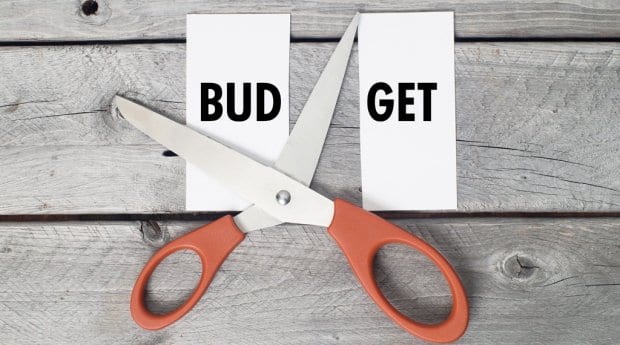Budget cuts under the Conservative government are making it difficult for some LGBT organizations, festivals and health services to function, say several organizations affected by the cuts.
Many festivals that rely on federal funding through the Department of Canadian Heritage’s Building Community Through Arts and Heritage Program (BCAH) report feeling shortchanged, although neither the criteria to receive support, nor the pot of money available have changed since 2011, according to government officials.
“We know that the Conservative government is not pro-LGBT, and that they are not here to help the community,” says Jean-Sébastien Boudreault, vice president of Montreal Pride.
Montreal Pride received only $34,000 out of a maximum $200,000 available through the BCAH program in 2015. Program funds are intended to support festivals that present the work of local artists, actively involve members of the local community, and are accessible to the general public.
Boudreault says Montreal Pride fit the criteria — to no avail.
“When we followed up, the people at Canadian Heritage told us that there was nothing we could do to get a higher score, but they could not tell us why we were not getting more money.”
Asked why Montreal Pride received limited funding, a spokesperson for Canadian Heritage told Daily Xtra via email that the amount awarded represented an increase in the previous year’s funding.
“The budget allocated from the BCAH program is limited,” the spokesperson added, and “funding decisions are based on the number and quality of requests received for each deadline.”
Some LGBT organizations have seen their funding completely severed. The Rhubarb Festival, organized annually by Toronto’s Buddies in Bad Times theatre to showcase emerging queer artists, received no support in 2013 and 2014, despite receiving $20-25,000 in previous years.
“We know that government funding is competitive, and that past funding does not guarantee future funding,” says Mark Aikman, director of development and communications at Buddies in Bad Times.
But, Aikman says, the Rhubarb Festival used to receive some explanation when funding was limited or denied. “Previously they were quite open and pointed about areas where we scored well, and about where we could use improvement. This time there was no reason given.”
Like the Rhubarb Festival, Vancouver’s Queer Arts Festival (QAF) also lost its funding without explanation in 2013.
In a letter to the festival, Canadian Heritage said it rescinded the funding because QAF no longer fit the sponsorship criteria to deliver “measurable and tangible results, to optimize available funds, and to meet the needs of Canadians.”
Although 75 percent of QAF’s funding was quietly reinstated after two days of public outrage, and has remained steady and even increased somewhat since, the situation remains precarious.
The Canadian HIV/AIDS Legal Network also lost a third of its support in 2012.
Executive director Richard Elliott says the organization was penalized for activities that the government considered advocacy work. “Most of our activities were deemed ineligible because they might produce materials or other outputs that could be used for advocacy. We lost one third of our core budget.”
According to Sylwia Krzyston, senior media relations at the Public Health Agency of Canada (PHAC), the criteria for funding community health organizations have not changed.
In order to be eligible for federal grants, organizations must have charitable status, she says. And in order to have charitable status, “organizations cannot engage in advocacy or political activities,” she says.
Activities deemed ineligible by PHAC include: the public screening of a documentary about the impact of HIV criminalization on women which was created with support from PHAC, and a workshop to examine what a new UN convention on the rights of persons with disabilities could mean for HIV-positive Canadians.
“The UN convention was ratified by Canada, and yet funding a workshop to look at what this convention means was deemed ineligible,” Elliott says. “It is Orwellian.”
The HIV/AIDS Legal Network was forced to discontinue several projects and cut staff due to the loss in funds.
According to Elliott, the funding cuts are only part of the problem. He says the Conservative government has also failed to honour a commitment signed by all political parties in 2004 to increase federal funding for HIV/AIDS from $42.2 billion to 84.4 million over five years. The planned investment in 2015/2016 is $70.5 million, according to PHAC.
Elliott says the Conservatives have also failed to carry out “Leading Together,” a pan-Canadian action plan to address HIV. “It was a pretty good plan,” he says. “It included advocacy because that is what leads to better research and better public policy.”
Getting federal funding has become a challenge, agrees Ken Monteith, executive director of Québec’s network of AIDS organizations, the Coalition des organismes communautaires québécois de lutte contre le Sida.
“You have to be creative in how you describe what you are doing to make sure you do not set off any political alarms,” he says.

 Why you can trust Xtra
Why you can trust Xtra


